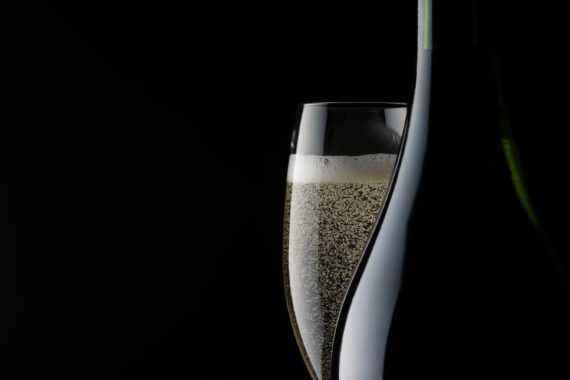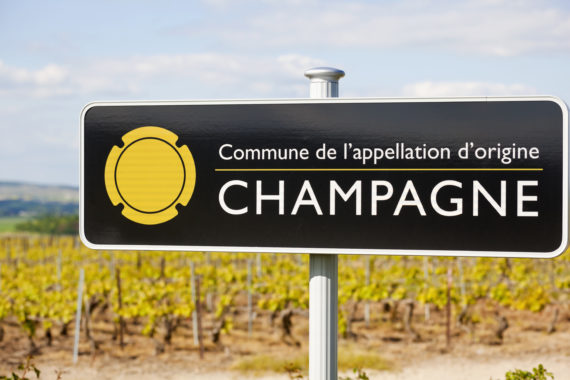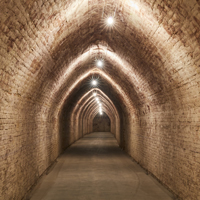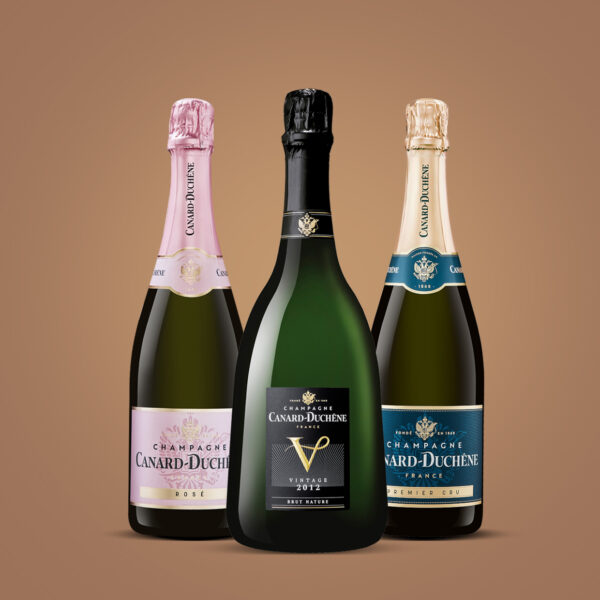The Mag
What is the alcohol content of champagne?

In an alcohol-based drink, the alcohol content is expressed in two ways, either in degrees or in percentages. Champagne has an average alcohol content of 12.5°, but what does this percentage actually mean? Is it high or not? Should this be taken into account when serving the champagne? Can it vary? Answers below.
The alcohol in champagne
gives it body and preserves it
Not many of us know this, but there is no one type of alcohol in a glass of champagne. The basic component is ethanol (ethyl alcohol). It gives the champagne its vinosity and body while playing a significant role in its conservation over time.
Other alcohols such as glycerol and butylene glycol are used in the composition of champagne . Their flavour is an asset, it is what will bring touches of sweetness and mellowness to the wine.
Brut nature, Blanc de blancs, Rosé champagne :
does the alcohol level change?
No! A classic cuvée Brute or a prestige cuvée have more or less the same degree of alcohol, always around 12.5%. On the other hand, champagnes made more than 100 years ago contained less alcohol (about 9%).
The reason is simple, the period being colder than nowadays, the ripening of the grapes was done later with a lower sugar concentration than today. Yeasts were also naturally less efficient at that time, but let’s not forget that they are the ones that help transform sugar into alcohol.

Bubbles
and alcohol
If champagne is not more dosed in alcohol, or even less dosed than a Burgundy wine for example (13.5%), its effervescent bubbles composed of carbon dioxide can have a different effect on the body. Studies conducted at the Epsom Hospital in England have shown that they facilitate the absorption of alcohol in the stomach. To be drunk slowly and in moderation!
What if we add ice cubes
to the glass?
Ah, the famous refreshing pool champagne served under the sun! The question may arise: does adding a few ice cubes lower the alcohol content? Well no, not at all, your champagne served with 12.5% alcohol will have the same alcohol content, even with a few ice cubes.
Similarly, the serving temperature does not affect the alcohol content. Ideally served between 6° and 9° (between 10° and 12° for prestigious cuvées), the alcohol content of champagne does not vary. However, served too hot, it can bring out notes that are a little too alcoholic and take precedence over the aromas.
Ageing
and alcohol levels
Does the ageing of a champagne change the alcohol content? Also, bottles of champagne can age for many years without their alcohol content changing one iota. They will, however, become more complex, but that is another matter.
In the same way, if the sugar level can vary between the different families of champagne, the alcohol level remains unchanged. Thus a Demi-sec champagne (between 32 and 50 grams of sugar per litre), will not be more alcoholic than an Extra brut champagne (between 0 and 6 grams of sugar) or even a Brut nature whose sugar dosage is the lowest in the category.
Like other alcoholic beverages, champagne should be consumed in moderation. Its singularity and its exceptional image make it a pure tasting product that is enjoyed slowly and never in excess.
These articles may be of interest to you

Advices
How are champagne bubbles formed?
They are the very symbol of champagne, these small, fine, sparkling bubbles, but how do these bubbles appear? What are the phenomena behind…

Knowledge
What is champagne stirring?
The champagne stirring is this ancestral gesture which consists in turning the bottles and to raise them gradually to bring the deposit in…




